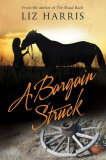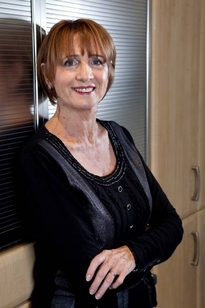
***
Many thanks for inviting me to join you today, Rachel.
I was handed the idea for my first published novel, The Road Back, on a plate – or, rather, in an album: the novel was inspired by the album compiled by my uncle after he’d visited Ladakh, north of the Himalayas, in the 1940s.
My inspiration for A Bargain Struck came from a very different source – it came from the radio. While driving along one day, thinking about what to write that would fall into the same genre as The Road Back, I heard someone talking about mail-order brides from Russia. I sat up. The concept of mail-order brides was a really romantic concept, I thought. But not in Russia. Before I’d reached my destination, I’d relocated my developing storyline to the wide open plains of Wyoming, where mail-order brides were a common occurrence, and set the story in 1887, a very interesting year in the history of Wyoming.
Before I start writing, though, I work out my characters. After all, the story is going to spring from their characters as much as from any external conflict. I then draw up a rough chapter plan – I always like to have an idea of where I’m going – and I begin to write. About halfway through the novel, I pause to take stock of what I’ve written and where I'm going.
When writing a novel, the middle is always the hardest. The first and last parts dictate themselves: you’re setting up characters and conflict in the first part, and satisfactorily bringing the stands together in the final part. It’s the middle where you can easily get lost.
I tighten my original plan at this stage. By ‘planning’, I simply mean listing the chapters I’ve written so far and fleshing out their content, and then working out what I need to do in order to reach the conclusion I want. When you see everything set out before you on the page, the way to proceed becomes much clearer.
When I finish the novel, I go through it again with a critical eye. If there are any characters or plot ideas that really aren’t working, I get rid of them, painful though it is. I wouldn’t delete them, though – that would feel too drastic. Rather I’d put them into a clearly labelled online file so that I could access them if I needed to. Having a sort of halfway house makes discarding material much easier. Occasionally I might use words or phrases from the discarded pieces, but generally, by the time I’ve finished the novel, I can see how much better it is for my brutality and I’m happy to press delete.
By then, the novel is the best I can make it without help. As I’m with a publisher, my work will be thoroughly edited in three stages, from substantive editing to copy editing. If you aren’t yet published, the biggest favour you can do for yourself is to have your finished manuscript professionally critiqued/edited before submitting it to an agent or publisher. I certainly did with The Road Back.
You cannot see your work for yourself – you’ll read what you think you’ve written, not what you’ve actually written. We all need independent eyes to tell us where the pacing is slow, the characterisation unmotivated, where there’s repetition, an over-use of adverbs and adjectives, poor punctuation, and so on.
No matter who edits your work, there is nothing more exciting than giving effect to an editor’s advice: you see you see your work improving with every change that you make, and that’s an exhilarating process. Enjoy!
Widower Connor Maguire advertises for a wife to raise his young daughter, Bridget, work the homestead and bear him a son.
Ellen O’Sullivan longs for a home, a husband and a family. On paper, she is everything Connor needs in a wife. However, it soon becomes clear that Ellen has not been entirely truthful.
Will Connor be able to overlook Ellen’s dishonesty and keep to his side of the bargain? Or will Bridget’s resentment, the attentions of the beautiful Miss Quinn, and the arrival of an unwelcome visitor, combine to prevent the couple from starting anew.
As their personal feelings blur the boundaries of their deal, they begin to wonder if a bargain struck makes a marriage worth keeping.
Published by Choc Lit and available internationally in paperback and various ebook formats.
| Visit Liz's website and blog, check out her full list of books at Goodreads, and connect with her via social media on facebook and twitter. | Liz was born in London. After graduating with a Law degree, she moved to California where she led a varied life, from waitressing on Sunset Strip to working as secretary to the CEO of a large Japanese trading company. Real life intervened and she returned to the UK, completed a degree in English and taught for a number of years. In addition to The Road Back and A Bargain Struck, both in paperback and on kindle, she’s had two ebooks published by Choc Lit, Evie Undercover and The Art of Deception (soon to be released). Liz’s two sons live in London, while she and her husband now live in Oxfordshire. |



 RSS Feed
RSS Feed



